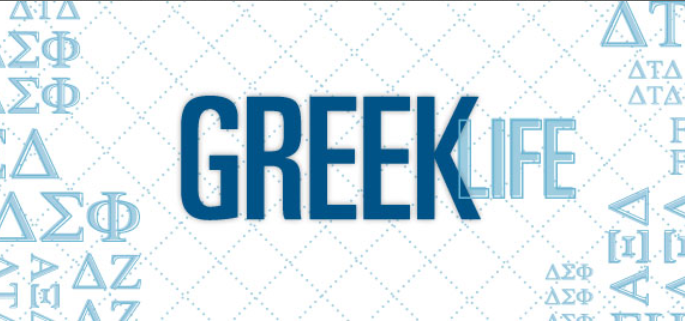College Greek life debated
Pro:
When students venture into college, a common consideration is whether or not to take part in Greek life. Although various concerns have been voiced regarding problems with Greek life, joining a sorority or fraternity is beneficial to college students because it gives them a sense of philanthropy, makes it easier to merge into college life and allows them to gain numerous opportunities.
Despite multiple stereotypes, Greek life teaches students how to give back to the community. Almost every Greek house has a designated charity with which they work to raise money and awareness. For example, in universities across the U.S., the sorority Alpha Chi Omega dedicates its time and effort to raise money and awareness against domestic violence and has even started an informational website including educational videos.
Greek life also welcomes students into a home and assists them in making friendships they will cherish forever. Greek life makes it easier for many students, particularly freshmen or those new to the school, to make friends. Almost all fraternities and sororities have adopted a “brother” or “sister” program in which two students are paired together to develop a relationship that closely mirrors a sibling. These relationships play a huge role in Greeks’ lives, many of whom continue their “kinship” after college.
“Being in a sorority makes it easier to make friends your first year of college when you do not know anyone,” said junior Lauren Dickstein.
Another advantage of the Greek system is the unique opportunities not provided to regular students. Greek houses often host exclusive academic events with famous guest speakers and professors. This allows students in fraternities and sororities to gain insightful opportunities for jobs and contacts that can be used later in life. All members are highly encouraged to find a balance between academics and various outside activities, and many Greek houses actually have an academic requirement.
Despite the overly-publicized issues of fraternities and sororities, the public’s perception of Greek life is far from the truth. Fraternities and sororities are much more than social events and partying and are more about philanthropy, friendships and business connections that will remain stagnant in a student’s life even after graduation. Before stereotyping Greek life, one should note the true benefits it entails.
Written by Jillian Punwar – Staff Writer
Con:
In reality, fraternities and sororities are nothing more than organized groups that boast of exclusivity and create tension amongst students. These groups are often responsible for throwing parties that are extremely difficult for outside students to get into, creating a disconnect between students, and also providing a place for drug and alcohol use. In 2012, Elite Daily recorded that 62.4 percent of girls in sororities admitted to abusing alcohol, and 50 percent of Greek students have done poorly on a test due to alcohol consumption.
“Maybe some organizations keep students under control, but it’s impossible to ignore the fact that a lot of them do not,” said sophomore Julia Kerley.
Aside from the dangers of parties, fraternities and sororities often promote racism and sexism. Although two boys from Oklahoma’s Sigma Alpha Epsilon were expelled following the release of a tape featuring them reciting racist chants, this does not excuse the fact that they had these ideas and acted on them. While they may advertise themselves as being fun and exciting, many of these organizations condone violence and hazing. Nu Alpha Phi at Syracuse University, for example, recently made pledges exercise in the snow without gloves, which led to one boy contracting frostbite and losing four fingers.
“The university has zero tolerance for any form of hazing and takes this matter extremely seriously,” said a Syracuse representative in a statement to www.news.syr.edu.
However, the fact that the school is highly against this and yet allowed the event to occur makes this incident much worse; Greek organizations are willing to disregard the rules in order to continue their traditions. Students considering Greek life must consider if these are the groups they want to be associated with.
Written by Reni De La Nuez – Staff Writer
Your donation will support the student journalists of Calabasas High School. Your contribution will allow us to purchase equipment and cover our annual website hosting costs.







